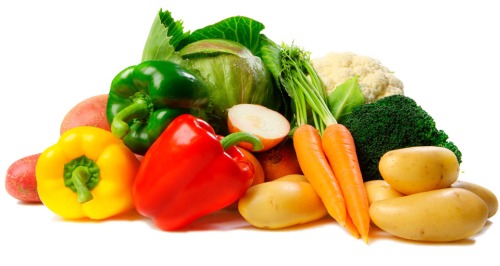So, what is this change of diet that I mentioned about in my previous post?
No need to worry, my suggestion will not cost you hundreds of dollars (in fact, it will actually save you hundreds). It will also not make you go hungry or deficient in nutrients, and will not make you give up many of your tasty, favourite foods. It can also be done stepwise, and how far you want to take it is up to you.
I am suggesting you to go vegetarian.
The first reaction to my suggestion I get most commonly is “but I love meat!” But I want to ask you the following four questions:
- Do you really like “meat,” or is it the texture, fat, and salty sauces that you like?
- Do you crave meat, or is it the nostalgia of spending your dinner time with your family that you crave?
- Do you desire meat or is it simply the energy, or calories that your body desires?
- Or rather, since this blog is about sustainability, how about this: Is the momentary satisfaction of your tastebuds worth the destruction of our planet?
I am aware that my last question is a strong one that some of you may not like. But the truth is, our love for animal flesh is one of the largest contributing forces to many of the ecological and environmental problems we see on the news today, including excessive greenhouse gases, water/ground/atmospheric pollution, antibiotic resistance, and loss of genetic diversity in agricultural crops. And although it is not the focus of this particular post, consumption of high amounts of fatty animal foods is linked to major diseases of affluence such as cardiovascular disease, which is the cause of 1/3 of deaths in Canada.
Of course, it is not only I who is making these claims of the destruction that the consumption of meat is causing. In a 2006 United Nations report published by the Food and Agriculture Organization of the United Nations called Livestock’s Long Shadow, one of the authors, Dr. Henning Steinfield stated the meat industry to be
“…one of the most significant contributors to today’s most serious environmental problems.”
Their analysis found the livestock industry to contribute around 18% of the total greenhouse gas emissions worldwide, a figure larger than that of total transportation using cars and airplanes. Plus, this number doesn’t fully represent the impact that meat consumption has on our atmosphere. For instance, a whopping 37% of worldwide methane comes from the guts of the billions of livestock animals, and unfortunately methane is also twenty times more potent in its warming effect than carbon dioxide on the Earth’s atmosphere.
The amount of energy spent, and the waste created in every step of meat production – starting from growing animal feed, going all the way to their manure and undesirable gases, refrigeration after slaughter, and to transport – are unfortunately, often ignored by many environmental groups. Thus, little about it is known to the public. The fact that changing our diet can have a substantial influence in our current atmospheric state and climate is sadly buried behind the fancy advertisements for Hybrid cars.
Fortunately, there are now more and more people realizing the truth. Groups such as Climate Focus, is suggesting a meat-free diet as one of their key strategies in reducing carbon emissions. Not only does this prevent forests and other greeneries from being cleared for agriculture and the popular “grass-fed” beefs, it also makes logical sense as the majority of the nutrients synthesized in primary producers are lost as they moves up the food pyramid (i.e. the energy is wasted for the animal’s own growth, energy, and waste).
The Environmental Working Group (EWG) also revealed many staggering statistics in its 2011 report, proving the impact of our food choices in our environment. For example, their analysis found one kilogram of consumed beef emitted 27.0 kilograms of CO2 for its production and post farmgate processes, while one kilogram of dry beans emitted only 2.0 kilograms of CO2. And did I mention that dry beans, which triple in amount when cooked, are packed with protein, fiber, low glycemic index carbohydrates, various vitamins and minerals?
I must confess, the topic of meat and the atmospheric effect alone is just too vast for me to cover in one post. Some of the examples I’ve mentioned above are just tip of the truth iceberg. To read further, I suggest you check out the two links:
Livestock’s Long Shadow, and the EWG’s Meat Eater’s Guide
…to be continued….

